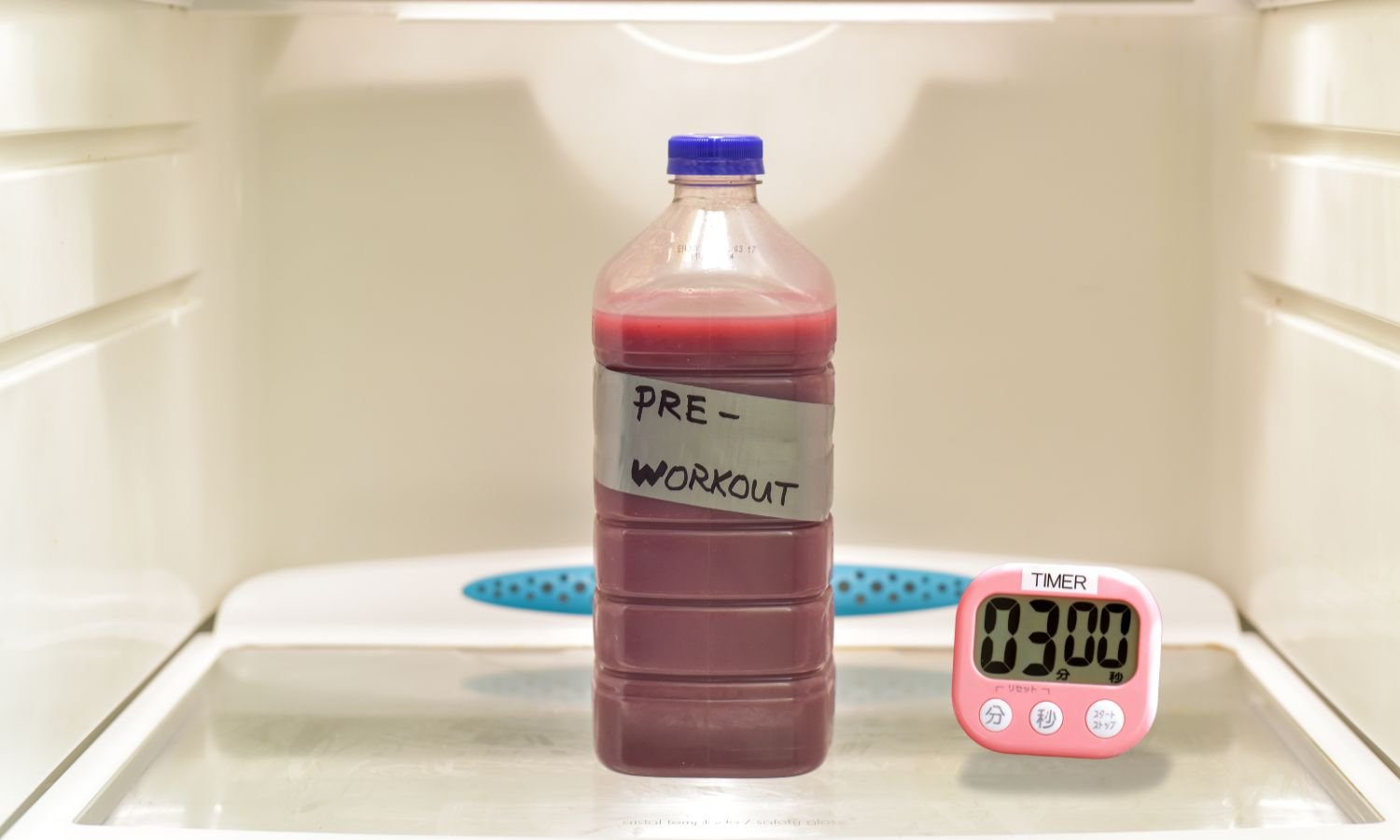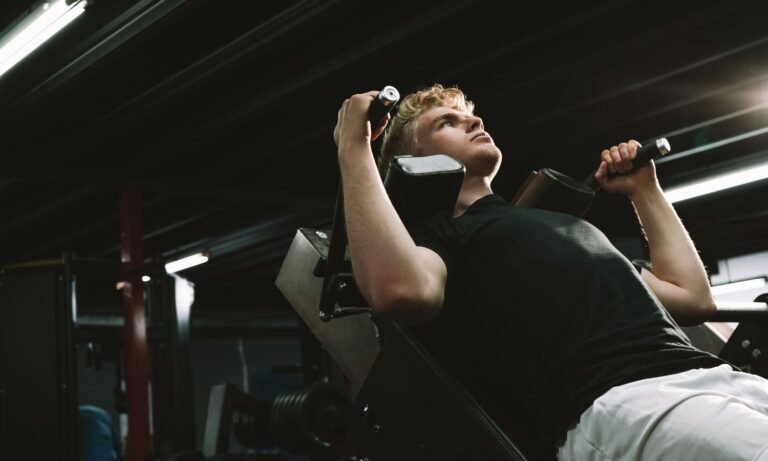Getting the most out of your workout can be a game-changer, and sometimes a pre-workout supplement is just what you need to hit your peak performance. But how long do these pre-workouts actually take to kick in? The answer isn’t one-size-fits-all, so let’s break it down.
What Are Pre-Workout Supplements?
Pre-workout supplements are designed to give you an energy boost, enhance focus, and improve performance during your exercise. They often contain a mix of ingredients tailored to help you push through those tough reps.
Common Ingredients Found in Pre-Workouts
Most pre-workouts include a blend of caffeine, amino acids (like beta-alanine and L-citrulline), B vitamins, and other compounds. Caffeine is a star player in most blends because of its well-known ability to boost alertness and delay fatigue.
How Each Ingredient Affects the Body
Caffeine gives you that initial jolt, increasing heart rate and blood flow. Beta-alanine helps reduce muscle fatigue, while creatine supplies energy to muscles during high-intensity training. All these ingredients work together to enhance your workout experience.
The Purpose of Taking Pre-Workout Supplements
Pre-workout supplements are all about giving you that extra push. They help improve endurance, power, and focus, which translates into a more productive gym session. Whether you’re lifting heavy or hitting a cardio workout, they’re designed to maximize your performance.
How Pre-Workouts Work
Pre-workouts need to be absorbed into your bloodstream before they can work their magic. Timing and individual factors play a huge role in how fast they kick in.
The Absorption Process of Pre-Workout Ingredients
After ingestion, pre-workout ingredients are absorbed through your stomach and intestines. They then enter the bloodstream, where they start delivering their effects. This absorption can be influenced by factors like your metabolism, what you ate before taking it, and even the form of pre-workout (powder, capsule, etc.).
Factors Affecting Absorption Speed
Metabolism, hydration, and your stomach’s content can all affect how quickly your body absorbs these supplements. A faster metabolism means quicker absorption, while eating a meal before taking your pre-workout might slow things down.
How Different Forms of Pre-Workouts (Powder, Capsules, Drinks) Work
Pre-workouts come in different forms, and each type affects the absorption speed. Powders mixed with water tend to absorb quicker than capsules, while pre-made drinks usually kick in faster since they’re already in liquid form.
How Long Does It Typically Take for Pre-Workout to Kick In?

In most cases, pre-workout supplements take about 20-60 minutes to kick in. But remember, everyone’s body is different.
The Average Time Frame (20-60 minutes)
The majority of pre-workouts will start working within this window. For most, you’ll start feeling that surge of energy around 30 minutes post-consumption, just in time to crush your workout.
Variations Depending on Ingredient Composition
Different pre-workouts have varying ingredients, which means some might kick in faster or slower than others. Products with high caffeine content might give you an instant boost, while those rich in amino acids like beta-alanine might take longer to feel.
Effects During Different Workout Phases (Warm-up, Peak Performance)
You might notice a gradual increase in focus and energy during your warm-up, but the peak effects usually hit when you’re deep into your workout. This is when your pre-workout’s ingredients are fully in play, enhancing your performance and endurance.
Factors That Influence the Effectiveness of Pre-Workouts
Several factors can affect how pre-workouts work for you, from your body’s metabolism to how you consume them.
Individual Metabolism and Body Composition
Your metabolism plays a big role in how quickly your body processes pre-workouts. Those with a faster metabolism might feel the effects sooner, while those with a slower metabolism might experience a delayed onset.
Timing of Consumption Relative to Workout Start
Taking your pre-workout too early or too late can affect its effectiveness. Ideally, you want to consume it 30-45 minutes before starting your workout to ensure it’s in full swing when you need it most.
Impact of Diet and Hydration Levels
Your diet and hydration status can also influence pre-workout effectiveness. Eating a heavy meal before taking it might slow absorption, while staying hydrated ensures better performance.
Frequency of Pre-Workout Usage and Tolerance Development
Using pre-workout regularly can lead to tolerance, making it less effective over time. It’s a good idea to cycle off pre-workouts now and then to prevent your body from getting too used to them.
How to Maximize the Effects of Pre-Workout
To get the best bang for your buck, follow these tips to maximize your pre-workout’s benefits.
Ideal Timing for Consumption
Aim to take your pre-workout 30-45 minutes before you start exercising. This timing gives the ingredients enough time to be absorbed and kick in during your session.
What to Eat or Avoid Before Taking Pre-Workout
Light, easily digestible snacks (like a banana or yogurt) can support pre-workout absorption, but avoid heavy, fatty foods. Eating too much can slow down the absorption process and delay the onset of effects.
Importance of Hydration and Proper Dosing
Hydration is key. Make sure you drink enough water with your pre-workout to help your body absorb the ingredients effectively. Stick to the recommended dose to avoid side effects and get the most out of your supplement.
Common Side Effects of Pre-Workout Supplements
Pre-workouts are generally safe, but they can come with some side effects if not used properly.
Short-Term Side Effects (Jitters, Nausea)
High caffeine content can lead to jitters, anxiety, or nausea. Start with a lower dose if you’re new to pre-workouts to gauge how your body reacts.
Long-Term Considerations and Potential Health Risks
Consistent overuse or high doses of pre-workouts can stress your heart and nervous system. Taking breaks and using supplements in moderation can help mitigate these risks.
How to Mitigate Side Effects
Stay hydrated, follow the recommended dosage, and avoid mixing pre-workouts with other sources of caffeine. This helps keep unwanted side effects to a minimum.
Alternatives to Traditional Pre-Workout Supplements
Not a fan of traditional pre-workouts? There are plenty of natural alternatives.
Natural Food-Based Alternatives
Foods like bananas, oats, and coffee can provide the same energy boost as pre-workouts. They’re great natural options for a pre-workout snack.
Caffeine and Its Role as a Pre-Workout Booster
Caffeine is the main player in most pre-workouts. A simple cup of coffee can provide a similar boost, without the extra ingredients.
Breathing Exercises and Mental Preparation
Mental focus is key to a good workout. Breathing exercises and mindfulness techniques can help you stay in the zone and push through tough workouts.
How long should I wait to work out after taking pre-workout?
About 30 minutes to allow time for absorption and to feel the full effects.
Can I take pre-workout on an empty stomach?
Yes, it may kick in faster, but can increase the chance of nausea or jitters.
Why don’t I feel the effects of pre-workout?
Could be a tolerance buildup, incorrect dosing, or taking it too soon after eating.
How often can I safely use pre-workout supplements?
Best to limit to a few times a week to avoid tolerance and side effects.
What happens if I take too much pre-workout?
May cause heart palpitations, jitters, or digestive issues. Stick to the recommended dose.
Summary
Pre-workout supplements can be a great way to boost energy and performance, but timing is everything. The typical kick-in time is around 20-60 minutes, depending on factors like your metabolism, diet, and the supplement’s ingredients. Follow the tips above, and you’ll be crushing your workouts in no time!




